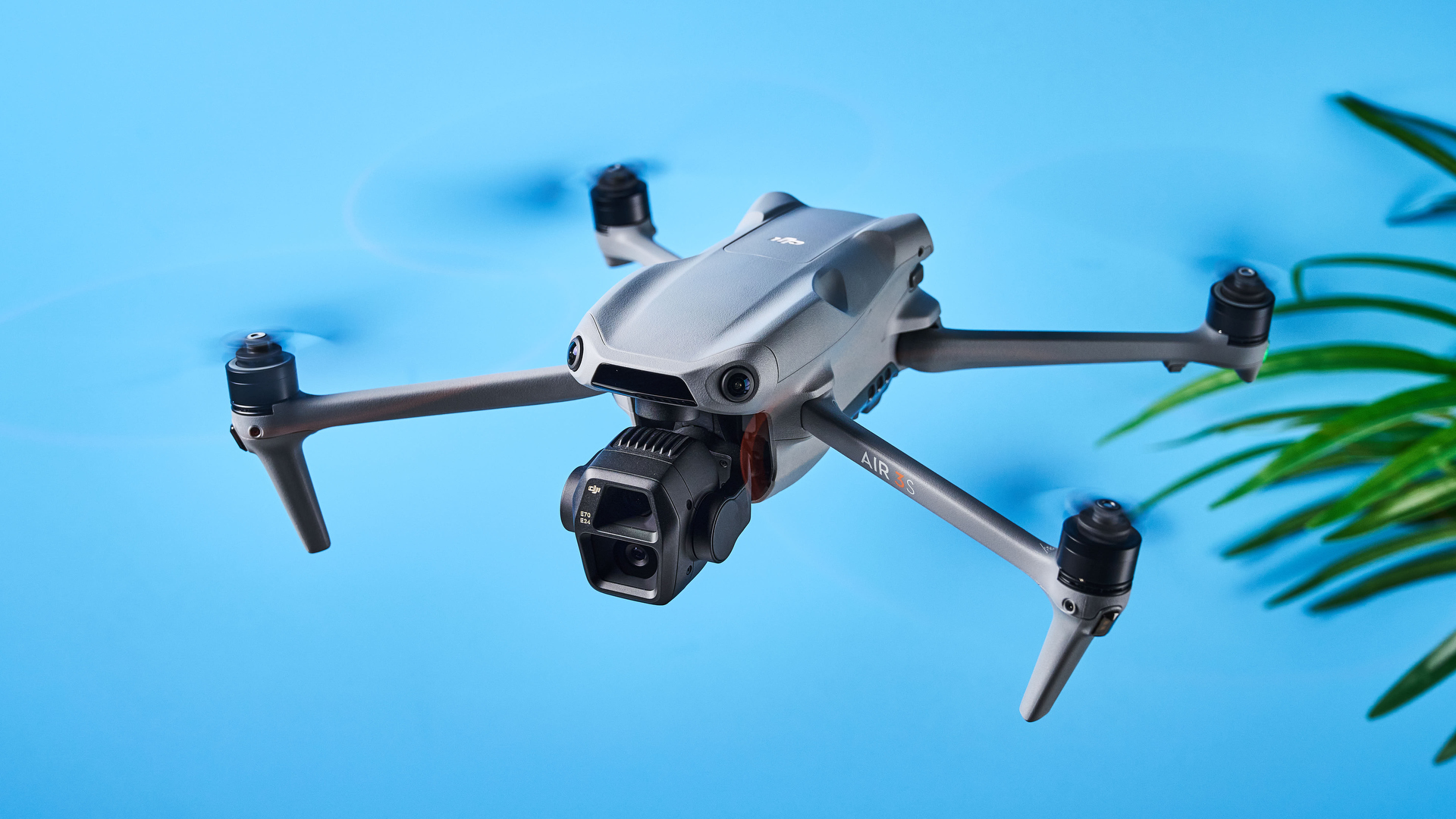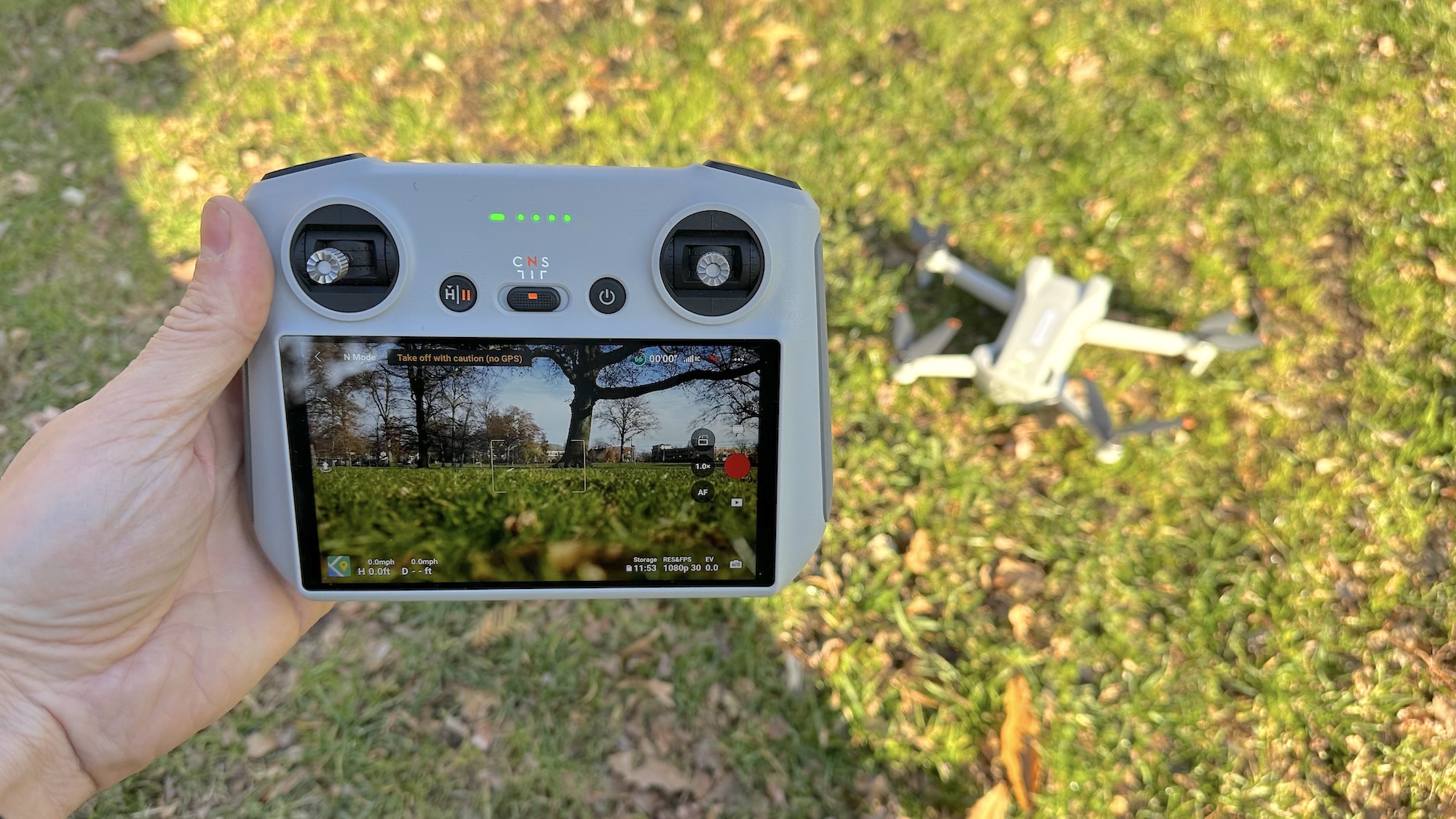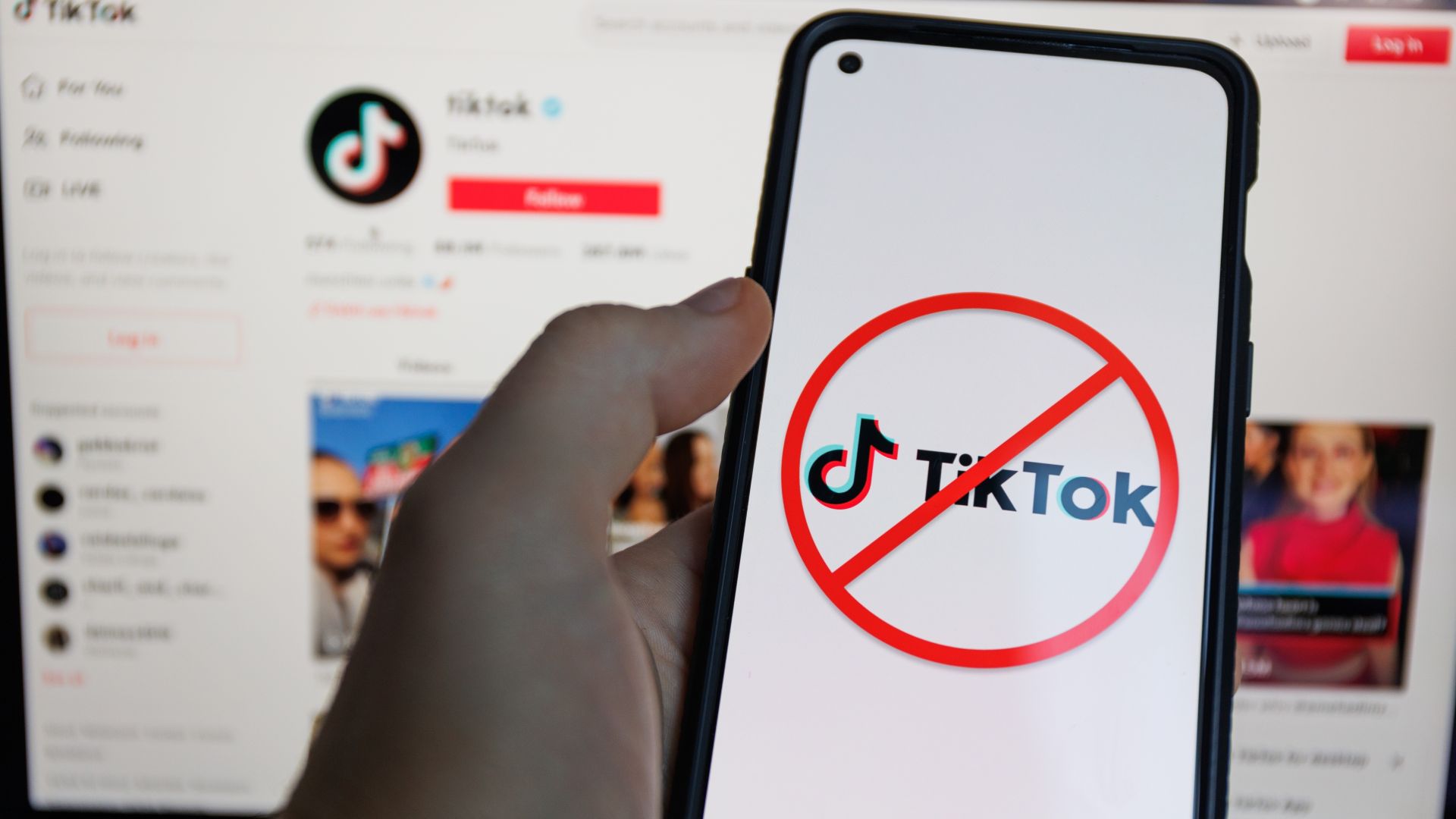DJI drone ban just got one step closer after FCC vote — what you need to know
Devices on the agency's Covered List could be banned soon

Today (November 3), the Federal Communications Commission (FCC) voted unanimously 3-0 to give itself the ability to retroactively ban devices and radio components that were previously approved for entry into the United States, if the manufacturers are later deemed a national security risk.
First reported by The Verge, the vote is being sold as a national security measure to prevent Chinese telecom devices from gaining a backdoor into U.S. networks. In practice, it likely means that drone maker DJI, maker of most of the best drones, will be prevented from importing new drones or wireless devices into the country starting on December 23.
In early October, when today's vote was initially proposed, FCC head Brendon Carr said the new rules would give the agency "new tools to safeguard our networks from insecure spy gear." The rules allow the FCC to not only block new products for companies on its "Covered List," but also older devices.
The Covered List features companies that have been deemed to "pose an unacceptable risk to the national security of the United States or the security and safety of United States persons," according to the FCC.
Currently, that list is mostly made up of Chinese companies like Huawei (banned since 2019) and the Russian anti-virus maker Kaspersky, which was banned in 2024.
DJI hasn't been specifically named by the FCC, but it's likely the company won't be off it for long. A spokesperson noted that DJI is not on the Covered List but the possibility it will be added is highly likely.
How we got here

In December 2024, the US Senate passed the National Defense Authorization Act (NDAA), the annual defense spending bill. As part of that bill, a national security agency has to proactively audit a company and state that it does not pose a risk to national security. It was initially passed by the U.S. House of Representatives in June 2024..
Get instant access to breaking news, the hottest reviews, great deals and helpful tips.
If not, the companies are added to the Covered List which would bar the FCC from authorizing their internal radios for use in the United States. Lacking that authorization effectively bans the devices for import and sale.
As of this writing, no U.S. national security agency has taken up an audit of DJI. "If that assessment is not completed by the deadline, DJI and another Chinese drone manufacturer would automatically be added to the FCC’s Covered List, without any evidence of wrongdoing or the right to appeal," DJI's Head of Global Policy Adam Welsh told Tom's Guide in a statement.
Welsh went on to say that DJI welcomes an audit.
"We urge the U.S. government to start the mandated review or grant an extension to ensure a fair, evidence-based process that protects American jobs, safety, and innovation."
Can you still fly your drone?

Even if the ban goes through, those in the U.S. who already own a DJI drone would still be able to fly them. However, a ban could mean that DJI might stop updating its app for U.S. customers, and there could be other issues with cloud-based features.
The FCC is also insisting that it won't take away existing DJI devices. A potential ban is a case-by-case basis. "[The] Commission should exercise revocation of devices containing prohibited components only in extraordinary circumstances and only on a case-by-case basis after specific national security agency determination."
Additionally, the public is allowed to weigh in on retroactive bans via a 30-day public comment period.
What DJI drones can you still buy?

Due to the ongoing issues, DJI has not listed two of its newer models — the DJI Mavic 4 Pro and the DJI Mini 5 Pro — for sale on its website, but you can find them at Amazon and other retailers.
In addition, there are a number of older DJI devices still available to purchase in the U.S., though due to the uncertainties of the ban and the age of the drones, might be increasingly hard to come by.
- DJI Neo 3 ($187)
- DJi Mini 4K ($299)
- DJI Mini 3 ($419)
- DJI Flip ($439)
- DJI Mini 5 Pro ($759)
- DJI Avata 2 ($999)
- DJI Air 3S ($1,099)
- DJI Mavic 4 Pro ($2,730)
Other Chinese companies affected

In September 2025, DJI lost a lawsuit against the U.S. Department of Defense over the military agency labeling it as a "Chinese Military Company." Though the federal judge allowed the Pentagon to continue using that title, they found no proof DJI is controlled by Beijing.
DJI isn't the only Chinese-owned company facing scrutiny by the U.S. Huawei was initially banned in 2019 and added to the Covered List in 2021.
The TikTok saga finally ended this past September with the sale of the U.S. assets of ByteDance's social media app. While the company's app was technically banned in January 2025, the deadline to enforce the ban was continually extended.
Meanwhile, TP-Link Wi-Fi routers are next on the potential ban list, and it's possible this retroactive ban ruling could affect the company. Multiple U.S. agencies, including the Justice Department and the Department of Defense, spent this past summer looking into banning the manufacturer.
While DJI drones might not be banned on December 23, it's looking highly likely that the company won't come out unscathed either way with no U.S. agencies taking up the audit. We'll know more come the end of the year.

Follow Tom's Guide on Google News and add us as a preferred source to get our up-to-date news, analysis, and reviews in your feeds.
More from Tom's Guide
- I test drones for a living — here’s what I think of Reddit’s top recommendations for beginners
- I gave the DJI Mini 5 Pro 5 stars and it’s finally available to buy in the U.S. — but not through DJI
- I’d never flown a drone until the Antigravity A1 but look at what I could shoot after only five minutes

Scott Younker is the West Coast Reporter at Tom’s Guide. He covers all the lastest tech news. He’s been involved in tech since 2011 at various outlets and is on an ongoing hunt to build the easiest to use home media system. When not writing about the latest devices, you are more than welcome to discuss board games or disc golf with him. He also handles all the Connections coverage on Tom's Guide and has been playing the addictive NYT game since it released.
You must confirm your public display name before commenting
Please logout and then login again, you will then be prompted to enter your display name.
 Club Benefits
Club Benefits





